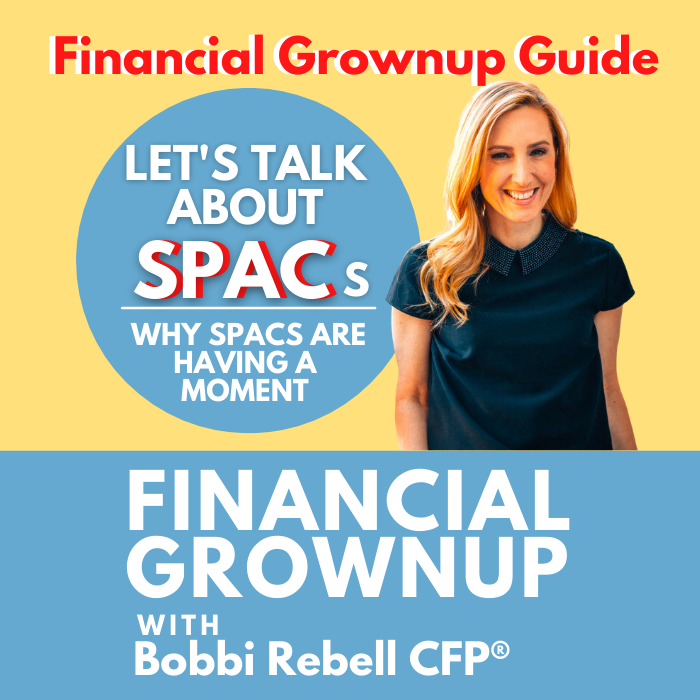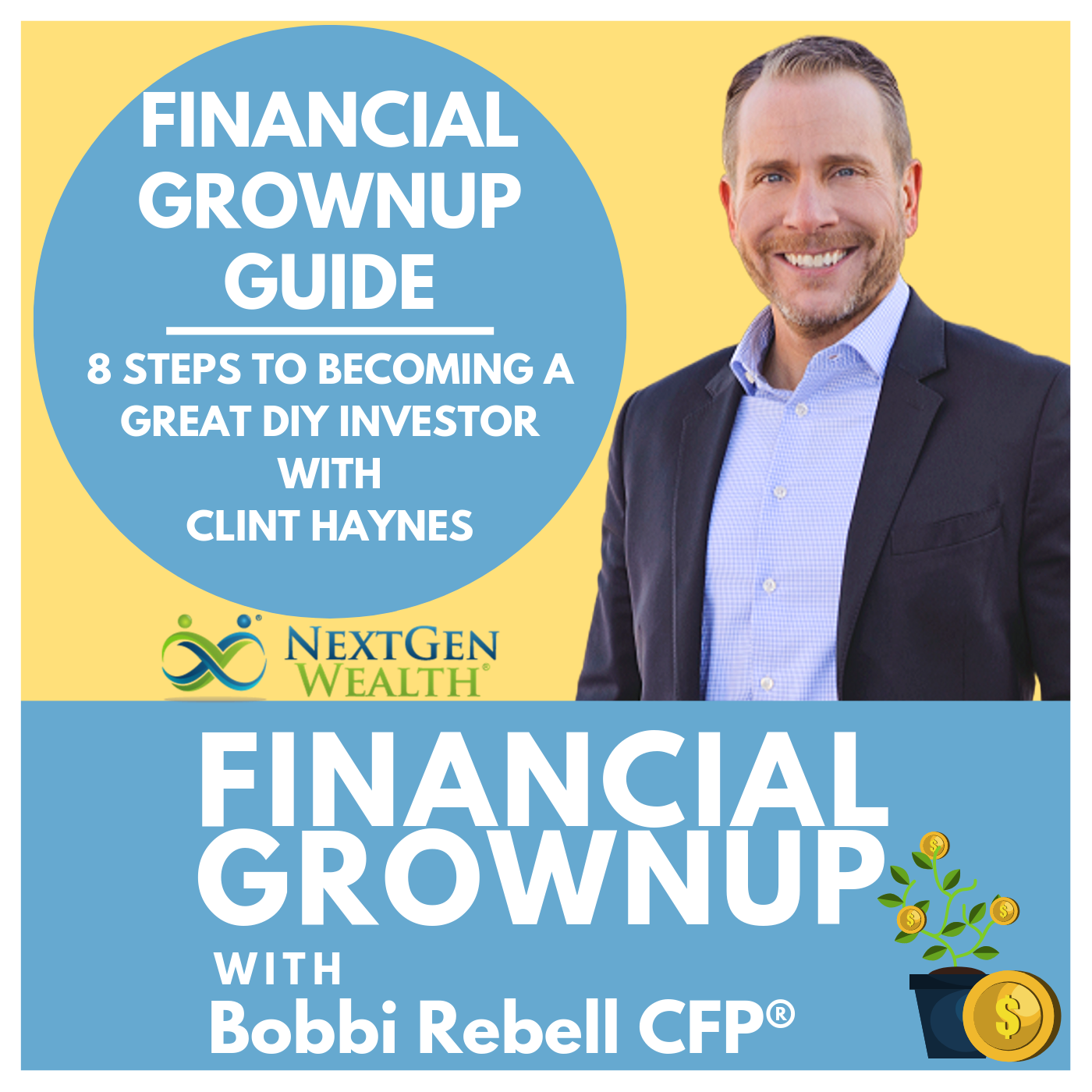The buzz on SPACs keeps building. Bobbi shares what is driving the trend, what a SPAC is, and what investors need to know about them.
Pros of SPAC
#1: It lowers the risk of going public. Let’s face it: a lot can go wrong. Companies are worried that market volatility could tank their public debut. Merging with a SPAC gets them a capital influx much faster and easier.
#2: It’s faster. Space have no financial history- so the only track record is the reputation of the management teams. For a company, merging with a SPAC can get them funding in a few months. The traditional IPO route which involves a lot of paperwork with the SEC can take as much as 6 months, sometimes longer.
#3: More control over valuation. With a SPAC merger, the company can negotiate a fixed valuation with the sponsors.
Cons of SPAC
#1: Shady history. Back in the 1980’s SPAC’s were known as “Blank Check Companies” The industry was full of fraud, and known for scamming investors. A federal law was even passed to crack down on them. Now there are some guardrails in place- for example, if an investor does not approve of a company that the SPAC is merging with they can get their money back.
#2: A successful SPAC can be incredibly lucrative for the for the sponsor, to the point where there is a concern that they might merge the SPAC with a less than ideal company just to get their big payday. Oh- and generally they have to make a deal within 2 years- so there’s a ticking clock to make something, sometimes anything, happen.
#3: Investors should be aware that the company that has gone public by merging with the SPAC has not gone through the vetting process of doing all the financial audits and requirements that happen in a traditional initial public offering. So you have to wonder: what do you not know about the company? In other words, it is easier for the company, but riskier for the investor.
Follow Bobbi!
Instagram - @bobbirebell1
Twitter- @bobbirebell
Website- http://www.bobbirebell.com/
Some of the links in this post are affiliate links. This means if you click on the link and purchase the item, I will receive an affiliate commission at no extra cost to you. All opinions remain my own.
FULL TRANSCRIPT:
Financial Grownup Guide: What is a SPAC- and why it is such a hot trend on Wall Street
Hi friends!
If you pay attention to the money and investing related news, which you should be, you have probably been hearing about SPACS- which stands for special purpose acquisition company. They have actually been around for decades-but the buzz has really been building lately. Their rep is that they are last resorts for small companies to go public, because they couldn’t raise money on the open market. But that doesn’t really explain why they are having such a big moment right now.
So here’s what we are going to go over in this episode:
-What is a SPAC
-Why would a company go public using a SPAC rather than the traditional route?
-What are SPACs so popular now- and what role did the global pandemic play in the trend?
-I'll tell you about the shady history of SPAC's
-What are the risks for investors?
Before we get into it- I do want to welcome everyone. If you are new- this is kind of a special episode. I do these solo episodes on occasion where I talk about a money topic- usually something in the news.
But most of our episodes focus on having a role model as a guest- a financial grownup as we like to say, sharing a money story that had a big impact on their life and then the lessons we can all learn from their experience. We also have them share everyday money tips that we can put to work right away. If you enjoy this podcast I hope you will take a moment to subscribe, and share it with friends or family that you think might enjoy it. One easy way is just to take a screenshot of the show and share it on social media- and please tag me @bobbirebell1 on instagram so I can thank you.
Back to SPACs. Let’s first go over exactly what a SPAC is- and is not.
Think of a SPAC as a shell company set up to buy another company- except it doesn’t necessarily know what that company will be. Usually a team of investors raise the money first- but again- very often without a target company. It goes public as a Special Purpose Acquisition Company but it contains no company. All it has is money kept in a trust.
Then we have companies that need money- and are on the hunt for the right way to get it.
So to simplify- on one side we have money with no company, and on the other side we have a company, that it looking for money.
This is different from the more common way for companies to raise big money in the public markets with a standard initial public offering. But that is really complicated- and expensive. There’s a ton of paperwork, financial audits and regulations. There are road shows, and pitch meetings with institutional investors. And it is super risky. Some of the risks the company can control, but the truth is the depending on what is going on in the world at the time the company wants to go public, a lot of how well that company will do- it can’t control.
But they have become a really big trend on Wall Street recently. 242 SPACs were introduced in 2020, quadruple the number raised in 2019, according to SPAC Insider. The average size of a SPAC in 2020 was $335 million, that is almost 10 times the amount in 2009.
And there are some interesting reasons why that we are going to talk about.
Reason #1: It lowers the risk of going public. Let’s face it: a lot can go wrong. Companies are worried that market volatility could tank their public debut. Merging with a SPAC gets them a capital influx much faster and easier.
Reason #2: It’s faster. Space have no financial history- so the only track record is the reputation of the management teams. For a company, merging with a SPAC can get them funding in a few months. The traditional IPO route which involves a lot of paperwork with the SEC can take as much as 6 months, sometimes longer.
Reason #3 More control over valuation. With a SPAC merger, the company can negotiate a fixed valuation with the sponsors.
All this has a lot of appeal during the global pandemic, given how much uncertainty there has been in the global markets. It got a lot harder to raise money the traditional way. So SPAC’s can provide a viable option for capital starved companies to access funding.
This all sounds great- so what’s the catch?
Well first- their shady history. Back in the 1980’s SPAC’s were known as “Blank Check Companies” The industry was full of fraud, and known for scamming investors. A federal law was even passed to crack down on them. Now there are some guardrails in place- for example, if an investor does not approve of a company that the SPAC is merging with they can get their money back.
Second: A successful SPAC can be incredibly lucrative for the for the sponsor, to the point where there is a concern that they might merge the SPAC with a less than ideal company just to get their big payday. Oh- and generally they have to make a deal within 2 years- so there’s a ticking clock to make something, sometimes anything, happen.
Third: Investors should be aware that the company that has gone public by merging with the SPAC has not gone through the vetting process of doing all the financial audits and requirements that happen in a traditional initial public offering. So you have to wonder: what do you not know about the company? In other words, it is easier for the company, but riskier for the investor.
Which brings us to why you should be paying attention to the trend. In my opinion- and this is an opinion, we should look carefully at why a company would choose to go public this way. That does not mean it is not a good investment. It just means, it did not go through the traditional red tape. To be clear, many companies go through the red tape, and no one takes the time to read all the details of what they have disclosed to potential investors.
That said, once a company is publicly traded, as the calendar mandates, it will have to comply with the laws regarding disclosure. So maybe, if you want to invest in a company that used a SPAC to go public, you might consider taking your time, and getting more information before you jump in.
Before I let you go- a reminder that I am on a campaign to boost financial literacy by giving out free books. If you want to win a book that has been grownup list approved- all you need to do is either do a screen grab of the podcast while you are listening to it - and post it on instagram and tag me at bobbirebell1- or write a review on apple podcasts and email it to us at hello@financialgrownup.com. You could win a book by one of the authors that has been on the show, or some of the merch from the grownupgear store which you can check out at grownupgear.com.
Some of the links in this post are affiliate links. This means if you click on the link and purchase the item, I will receive an affiliate commission at no extra cost to you. All opinions remain my own.









